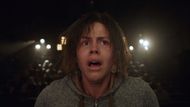Black Mirror doesn't creep in on you with monsters under the bed. It's not that obvious. It insinuates itself into your head, reprograms you until you're eyeing that smart speaker suspiciously. The frights aren't from jump cuts—they're from that terrible little voice in your head saying that this might actually happen.
Since its launch in 2011, Black Mirror has established itself as TV's go-to what-if machine—a glossy, dark anthology show that takes present-day tech and takes it one step too far. Creator Charlie Brooker isn't merely dreaming up scary futures; he's re-mixing our existing reality with a dystopian spin.
Each episode immerses us in a different world, but the through-line is a sort of high-def mirror reflecting our anxieties regarding privacy, surveillance, punishment, and the ever-fuzzier line between human and machine.
Now, when we try to determine the creepiest Black Mirror episode, the argument becomes intense. Some episodes unsettle you with psychological horror. Others leave you submerged in ethical gray areas. And then there are those that simply feel too close to home—where the tech, the repercussions, the breakdown of empathy—it all feels one bad tweet away.
To get to the root of what makes an episode “creepy,” you’ve got to think in layers:
There’s the psychological horror—the kind that scrambles your brain with mind games and existential dread.
There’s the moral discomfort, where you’re unsure who to root for because everyone’s just a little bit awful.
Then you’ve got technological plausibility—when the future onscreen feels eerily close to tomorrow’s product launch.
And lastly, there's social commentary, where the show reveals how easily humanity can become cruel when provided with the correct app or platform.
A handful of Black Mirror episodes over the years have ensured themselves as nightmare fuel for the masses. Shut Up and Dance screws with your faith in the internet and adds insult to injury with shame and blackmail. Playtest is a VR-gone-horribly-wrong horror tale that turns your fears against you. White Christmas is the type of episode you see over the holidays if you loathe joy—it's half sci-fi, half torture chamber psychological horror. And The National Anthem? Suffice it to say, once you've watched it, you can never again gaze upon politicians, or pigs, in quite the same way. Even Metalhead, with its black-and-white, no-speech, Terminator-canine mayhem, dispenses unadulterated, unrelenting survival horror.
But for pure creepiness, one Black Mirror episode always comes out on top: White Bear.
This one doesn't only frighten you—it shatters you. It begins as a disorienting survival horror and evolves into something much darker. A woman awakens with no recollection, pursued by strangers while spectators record her on their mobile phones. Sounds like a zombie movie in a dystopian world, right?
But halfway through, the twist flips everything on its head, and suddenly you’re not watching a horror story—you’re watching a theme park of punishment, where cruelty has been made into spectacle. It’s a gut-punch critique of mob justice, reality TV, and our growing addiction to public shaming.
White Bear lingers because it doesn't let you off the hook. It accuses you, the audience, of watching, judging, and reveling. And that's what makes it the creepiest of them all.
Disclaimer: The article contains the writer's opinion and does not necessarily reflect the official position of SoapCentral.
Creepiest Black Mirror episode
White Bear: Where horror meets hypocrisy

If there's one Black Mirror episode that will have you sitting blankly in front of your screen, it's White Bear. No ghosts, no creepy houses—just a woman, some strangers with phones, and a stomach-churning twist that leaves you wondering about your own sense of justice.
White Bear (Season 2, Episode 2) begins like a waking nightmare. A woman—Victoria—awakens in an unfamiliar house, dizzy, with absolutely no memory of who she is or what is happening around her. She wanders outside seeking assistance, only to encounter people filming her in silence with their phones. Nobody speaks. Nobody helps. Only empty faces behind screens.
And then the actual panic erupts: masked strangers show up and start to chase her.
As Victoria flees for her life through a series of increasingly bizarre terrors, the tension isn't just from the physical threat. It’s the silence. The onlookers. The fact that no one does anything. The fact that they simply observe. It's a type of fear that makes your skin crawl—not because there is something inhuman stalking her, but because the terror is all too human.
Just when you consider, perhaps, this is all just a tech-induced dream or some kind of crazy apocalypse, the twist comes up. Victoria is not some innocent victim. She is a criminal, a part of a heinous case of child murders.
The twist is that this entire scheme is a form of punishment. Her memory is reset every morning, and she's forced into the same cycle of terror every day, for public entertainment. Individuals pay to attend this "justice park," witness her suffer, perhaps take a selfie, and depart feeling morally superior.
Roll out the audience (you included), wriggling in their seat, asking themselves: Am I better than the individuals who are recording her?
Dissecting the themes in Black Mirror's White Bear

Punishment as primetime entertainment
White Bear draws a disturbingly straight line between reality TV, social media outrage culture, and plain old-fashioned public shaming. It's Judge Judy crossed with The Hunger Games, and it's all terrifyingly realistic. At what point does justice become performance? And how far do we go when someone needs to be punished?
Memory, identity, and accountability
Here's where it gets cloudy. If Victoria doesn't recall what she did, does she deserve this every day hell? Is she the same person without her memories? Black Mirror enjoys pricking our moral smugness, and White Bear attacks head-on. It's not so much what she did—it's how much we enjoy seeing her suffer for it.
The real monsters hold phones
Forget the masked bad guys—it's the quiet audience that disturbs you. Scores of humans, fixated on their devices, chronicling agony without so much as flinching a finger. Ring a bell? This is Black Mirror at its cutting edge, presenting a fractured iPhone-shaped mirror to our Instagrammed indifference. We scroll, we like, we share—and somehow in the process, compassion dissolves in the algorithm.
Revenge on repeat
Victoria's punishment isn't justice—it's vengeance. Repeated and repeated. No development. No conclusion. Just a constant feedback loop of suffering in the name of "closure." But what does it say about us that we require a theme park to deal with our sorrow? It's a chilling commentary on how revenge turns into ritual—and how we commodify suffering for the sake of spectacle.
Why does it hit so hard?

White Bear is a sort of episode that won't leave you alone. Critics, fans, and general viewers alike tend to label it the most disturbing one in the series. Not because it's gruesome or paranormal, but because it's the kind of episode that seems to really exist. And perhaps, in some sense, it does.
Online, it's the one that makes people say "haunted me for days" or "made me re-evaluate punishment and justice." Reddit forums consistently have it among the top three, along with Shut Up and Dance and White Christmas.
Compared to other creepy Black Mirror episodes

Let's give credit where credit is due—other Black Mirror episodes have their own kind of fright:
Shut Up and Dance is a blackmail thriller that strikes way too close to home. It's the episode that makes you look at your webcam and think twice before clicking suspicious links. And when that ultimate twist is revealed, it turns your sympathy on its head.
White Christmas is existential horror wrapped in festive wrapping paper. It takes ghosting to a terrifying new level with its “blocking” technology and endless consciousness punishment. You’ll never look at snow—or cookies—the same way again.
Playtest messes with your mind by turning fear into a game—literally. It’s a haunted house thrill ride that feeds on your worst nightmares and delivers a twist that’s more tragic than terrifying.
But even with all of those rivals, White Bear remains supreme. Because it's not merely terrifying—it's a morality test. A psychological pressure cooker. A social commentary dressed up in horror movie guise. And that's the type of fear that clings.
